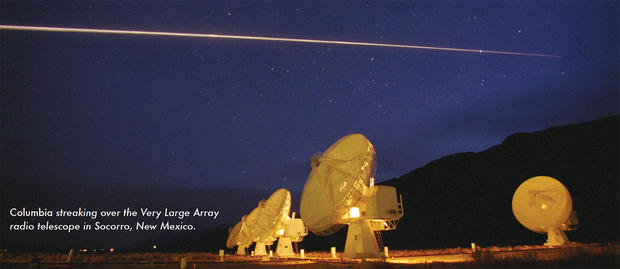Space Adventures proposes an orbital cruise on the SpaceX Dragon | TheHill – The Hill
Recently, Space Adventures announced that it will offer an orbital cruise on board the SpaceX Dragon, the same craft that will shortly take astronauts to and from the International Space Station (ISS). Up to four adventurous and well-heeled people will be rocketed into space in an orbit that will be farther away from Earth than any human has flown since the Apollo 17 mission, two to three times higher than the ISS.
Space Adventures expects the flight to take place somewhere between late 2021 and mid-2022. After a few weeks of astronaut training in the United States, the four passengers will take off for a five-day flight of a lifetime.
The deal represents the culmination of an often-overlooked part of the decision taken during the George W. Bush administration to commercialize spaceflight between Earth and low Earth orbit. The first part was obviously to replace the expensive space shuttle with cheaper, commercial alternatives to move people and things to and from low Earth orbit.
ADVERTISEMENT
But the other part of President Bush’s vision was to create a commercial transportation sector. Companies like SpaceX would use their spacecraft developed under the Commercial Orbital Transportation Systems (COTS) and Commercial Crew programs to create new businesses in space. The joint venture between SpaceX and Space Adventures is the first major attempt to fulfill that vision.
The world has been waiting for the space tourism industry to take off for over 15 years, ever since SpaceShipOne won the Ansari XPrize in October 2004. The suborbital jaunts that would be offered by Virgin Galactic and Blue Origin have always been a little while in the future.
But Space Adventures has a track record of providing private rides to the International Space Station aboard the Russian Soyuz. SpaceX has developed a record of accomplishing what it has set out to do, from a reusable first stage for the Falcon 9 to the Falcon Heavy. One should not bet against this joint venture coming to fruition. The only question is, do four people who can afford the flight and are brave enough to take the opportunity exist?
The other question arises, why should people be interested in rich people taking orbital jaunts around the world? Even with commercial spaceflight, middle-class people will not be able to take off work, pack the kids, and take a cruise in space like they are able to do in the Caribbean, at least not for a while.
The answer is that virtually every new product or service starts out being expensive. The wealthy, who certain politicians like to demonize to gin up votes, serve a useful purpose in trying out new things like space tourism. Eventually, the price will come down so that people of more modest means will be able to enjoy views of the Earth from space and experience the recreational opportunities of being in microgravity.
ADVERTISEMENT
SpaceX is developing a huge spacecraft that its CEO Elon Musk Elon Reeve MuskThe real reason SpaceX hired former top NASA official Hillicon Valley — Presented by Philip Morris International — Wyden asks NSA to investigate White House cybersecurity | Commerce withdraws Huawei rule after Pentagon objects | Warren calls on Brazil to drop Greenwald charges Tesla becomes world’s second most valuable carmaker MORE has dubbed the Starship. The Starship will be able to take 100 metric tons of payload, with refueling, to the moon and Mars. The rocket ship is the basis of Musk’s dream of settling Mars. NASA has some interest in using the Starship to deliver cargo to the moon.
Elon Reeve MuskThe real reason SpaceX hired former top NASA official Hillicon Valley — Presented by Philip Morris International — Wyden asks NSA to investigate White House cybersecurity | Commerce withdraws Huawei rule after Pentagon objects | Warren calls on Brazil to drop Greenwald charges Tesla becomes world’s second most valuable carmaker MORE has dubbed the Starship. The Starship will be able to take 100 metric tons of payload, with refueling, to the moon and Mars. The rocket ship is the basis of Musk’s dream of settling Mars. NASA has some interest in using the Starship to deliver cargo to the moon.
The Starship could be used as a space cruise ship, taking 100 people on orbital voyages for far less money than the first four people will pay for their trip on the Dragon. The rocket ship will have plenty of room and will have recreation facilities.
Companies such as Bigelow Aerospace and Axiom Space are developing private space stations, with NASA’s encouragement, to keep low Earth orbit research and development going after the ISS ends its operational life. Visitors to these commercial space stations will likely be researchers conducting experiments and developing technology. However, one can imagine people paying to stay on a private, orbiting resort for fun as well as for knowledge and profit.
The time is approaching, sooner than most people think, when space will not be a wilderness that only a handful of explorers venture into. Instead, it will be part of our world, where people regularly travel to and from as easily as we travel across the oceans to other continents. Space tourism will be a large part of making that future happen.
Mark R. Whittington, who writes frequently about space and politics, has published a political study of space exploration entitled “Why is It So Hard to Go Back to the Moon?” as well as “The Moon, Mars and Beyond.” He blogs at Curmudgeons Corner.






